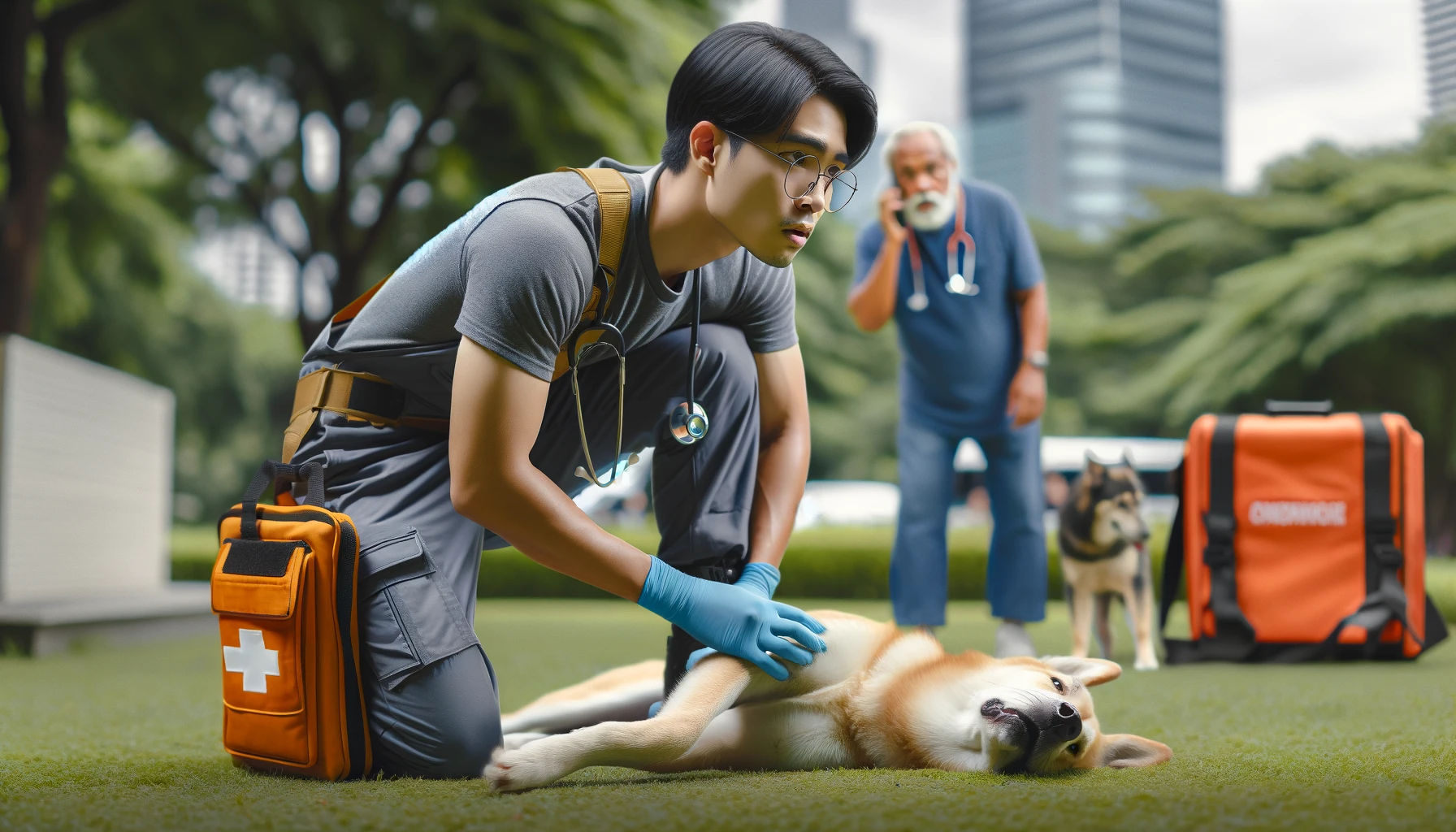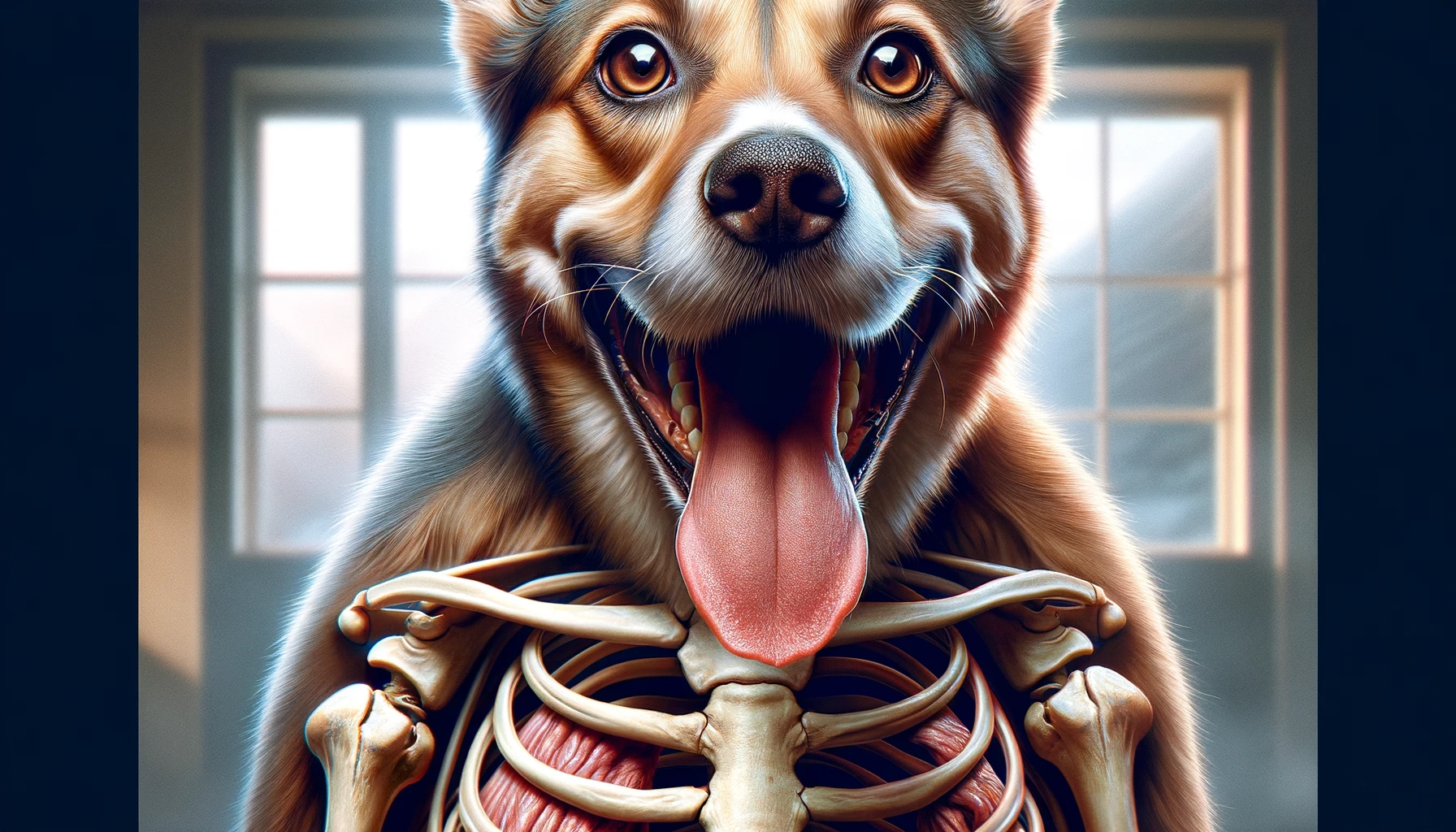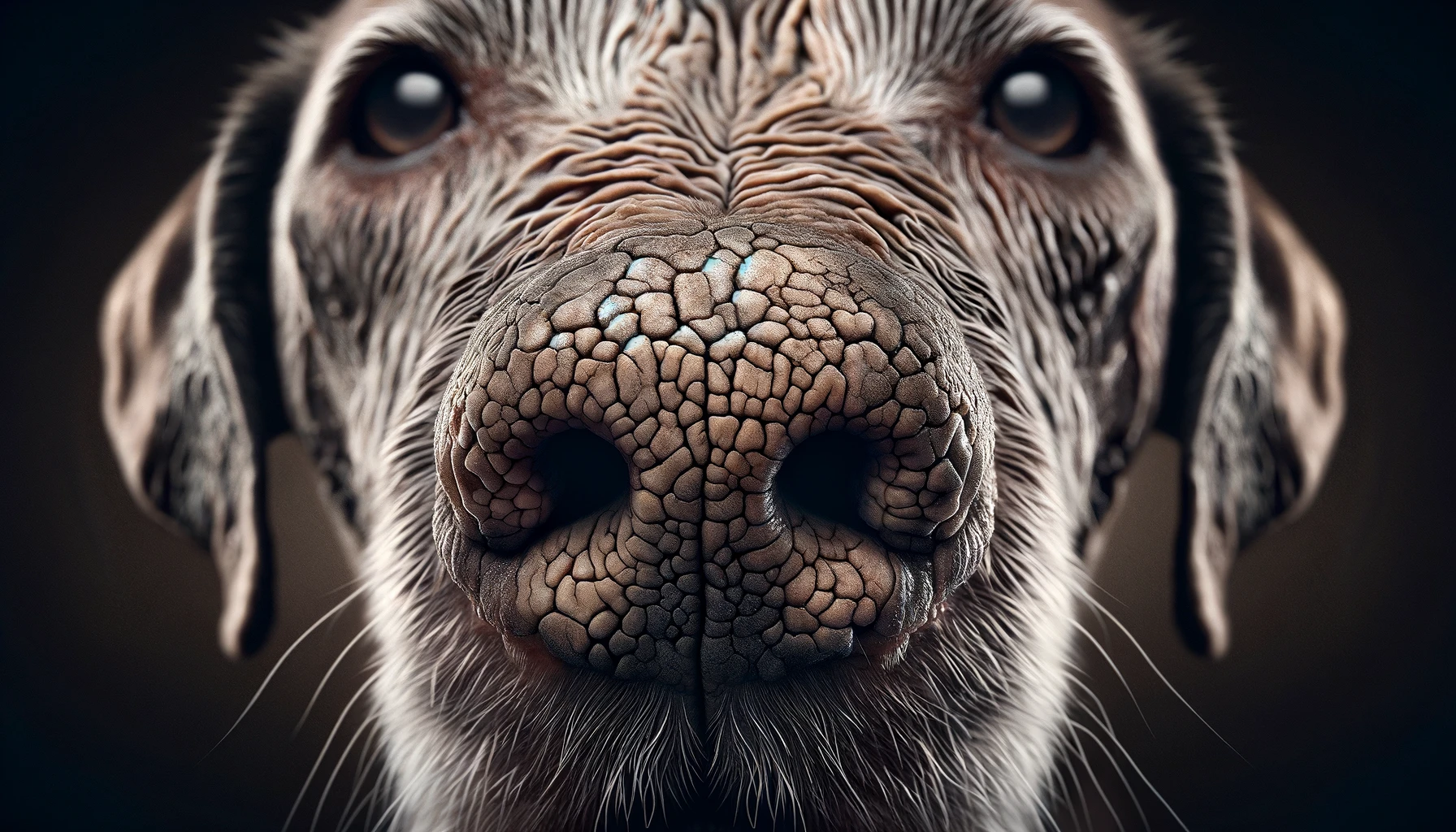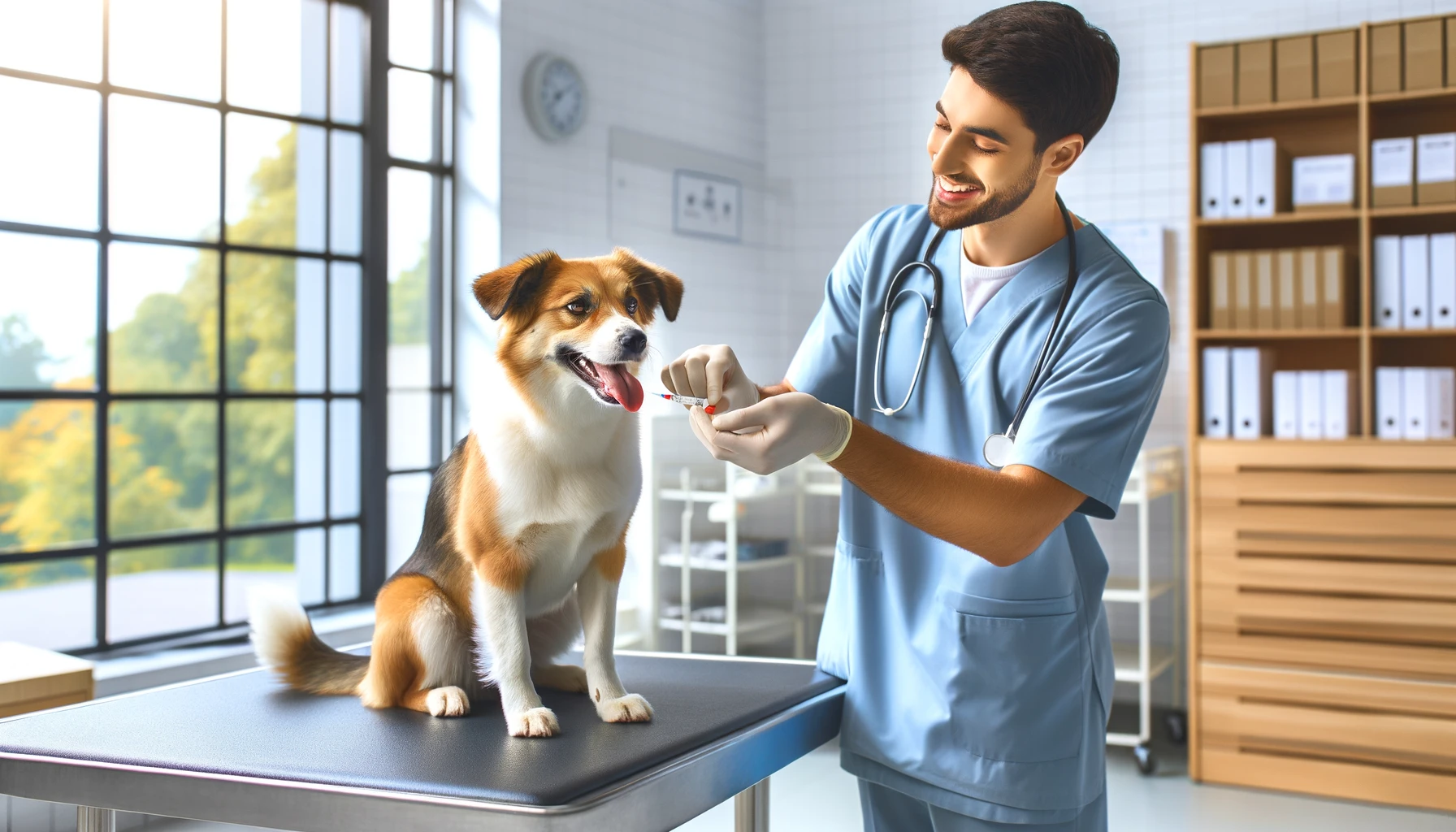Looking to keep your furry friend healthy and happy? Look no further! In this article, we'll provide you with simple tips to maintain your dog's health.
From proper nutrition and regular exercise to preventive veterinary care and dental health, we've got you covered.
Don't forget about mental stimulation and grooming and hygiene.
Get ready to become an expert in keeping your dog in tip-top shape!
Key Takeaways
- Ensure your dog receives a balanced and nutritious diet, consisting of high-quality proteins, carbohydrates, fats, vitamins, and minerals. Consult a veterinarian for appropriate food amounts and avoid dog food with fillers, artificial colors, and preservatives.
- Regular exercise is crucial for your dog's overall well-being and weight management. Choose activities based on your dog's breed, age, and energy level, and establish a consistent exercise schedule. Incorporate dog training exercises for mental stimulation and to strengthen the bond between you and your dog.
- Prioritize preventive veterinary care by scheduling regular check-ups and vaccinations. Keeping up with vaccinations and boosters helps maintain your dog's immune system and prevent diseases. Consult a veterinarian for vaccination schedules and information on preventing parasites.
- Maintain your dog's dental health and hygiene by scheduling regular dental check-ups, brushing their teeth with a soft-bristled toothbrush and dog-specific toothpaste, and providing dental treats and chew toys. Regular bathing and grooming with dog-specific shampoo and brushing the coat are also important for proper hygiene. Monitor your dog's weight, growth, dental health, and vaccination status through regular check-ups and health screenings. Discuss any behavioral changes and dietary concerns with your veterinarian.
Proper Nutrition
To maintain your dog's health, it's important to provide them with proper nutrition. A healthy diet is essential for your furry friend's overall well-being. Just like humans, dogs need a balanced and nutritious diet to thrive. A well-balanced diet consists of high-quality proteins, carbohydrates, fats, vitamins, and minerals.
When it comes to a healthy diet, portion control is crucial for weight management. Obesity in dogs can lead to a variety of health issues, such as diabetes, joint problems, and heart disease. Consult with your veterinarian to determine the appropriate amount of food for your dog based on their age, breed, and activity level. Avoid overfeeding and resist the temptation to give in to those puppy-dog eyes.
Additionally, make sure to choose high-quality dog food that meets the nutritional requirements of your dog. Look for brands that have real meat as the primary ingredient and avoid foods with excessive fillers, artificial colors, and preservatives. It's also important to provide fresh water at all times to keep your dog hydrated.
Regular Exercise
Keep your dog healthy and active by incorporating regular exercise into their daily routine. Regular exercise is essential for your dog's overall well-being and can have numerous benefits, including improved cardiovascular health, better weight management, and enhanced mental stimulation.
Here are four important tips to help you incorporate regular exercise into your dog's routine:
- Choose the right activities: Different dogs have different exercise needs, so select activities that match your dog's breed, age, and energy level. For high-energy breeds, consider activities such as running, playing fetch, or agility training. For smaller or older dogs, shorter walks or gentle play sessions may be more appropriate.
- Establish a schedule: Consistency is key when it comes to regular exercise. Set aside specific times each day for exercise and stick to the schedule. This won't only benefit your dog's physical health but also help establish a routine that they can rely on.
- Incorporate dog training: Use exercise as an opportunity to reinforce basic obedience commands or teach new tricks. Incorporating training into your dog's exercise routine adds mental stimulation and helps strengthen the bond between you and your furry friend.
- Monitor weight management: Regular exercise plays a crucial role in maintaining a healthy weight for your dog. Obesity can lead to various health issues, so monitor your dog's weight and adjust their exercise routine accordingly. If you're unsure about the appropriate exercise regimen for your dog's weight management, consult with your veterinarian.
Preventive Veterinary Care
To ensure your dog's health, preventive veterinary care is crucial. This includes keeping up with vaccinations and boosters to protect your dog from diseases.
Regular check-ups are also important to catch any health issues early on. Additionally, don't forget to prevent parasites by using appropriate medications and treatments recommended by your veterinarian.
Vaccinations and Boosters
Ensure your dog receives regular vaccinations and boosters to protect against preventable diseases. Vaccinations are crucial for your dog's health as they can prevent serious illnesses and even save their life. Here are some important points to remember about vaccinations and boosters:
- Benefits of vaccinations:
Vaccinations help stimulate your dog's immune system to fight off diseases. They provide protection against common diseases such as rabies, distemper, parvovirus, and hepatitis. By preventing these illnesses, vaccinations can significantly improve your dog's quality of life and reduce the risk of transmission to other animals or even humans.
- Importance of booster shots:
Booster shots are follow-up vaccinations that help maintain your dog's immunity over time. They're necessary because the initial vaccination may not provide lifelong immunity. Boosters help reinforce your dog's immune response and ensure continued protection against diseases.
- Vaccination schedules:
Your veterinarian will provide you with a vaccination schedule tailored to your dog's specific needs. It's important to follow this schedule to ensure your dog receives the appropriate vaccinations at the right time.
- Talk to your veterinarian:
Your veterinarian is the best source of information regarding vaccinations and boosters for your dog. They can guide you on the appropriate vaccines, schedules, and any potential risks or side effects.
Regular Check-ups
Make sure you schedule regular check-ups with your veterinarian to ensure your dog's ongoing preventive veterinary care. Vet appointments are crucial for maintaining your dog's overall health and detecting any potential issues early on.
During these visits, your veterinarian will conduct comprehensive health screenings to assess your dog's condition and identify any underlying health concerns. These screenings may include physical examinations, blood tests, fecal analysis, and other diagnostics tailored to your dog's age and breed.
Regular check-ups allow your veterinarian to monitor your dog's growth, weight, dental health, and vaccination status. They also provide an opportunity to discuss any behavioral changes, dietary concerns, or other issues you may have noticed.
Parasite Prevention
Ensure your dog stays protected from parasites by following a preventive veterinary care plan. Parasite control and flea prevention are essential for your dog's health and well-being.
Here are four important steps to include in your preventive care plan:
- Regularly administer flea and tick preventives: Use veterinarian-recommended products to protect your dog from these common parasites. Apply the treatment as directed and be consistent to ensure maximum effectiveness.
- Keep your dog's environment clean: Regularly clean and vacuum your home to eliminate fleas and their eggs. Wash your dog's bedding frequently and keep outdoor areas tidy to minimize the risk of infestation.
- Practice good hygiene: Regularly bathe and groom your dog to remove any parasites or eggs that may be present. Use a flea comb to check for any signs of infestation.
- Schedule regular check-ups with your veterinarian: Regular veterinary examinations allow for early detection and treatment of any parasite-related issues. Your veterinarian can provide guidance on the most effective preventive measures for your dog's specific needs.
Dental Health
To maintain your dog's dental health, it's important to prevent dental diseases and regularly brush their teeth. Dental diseases such as gingivitis and periodontal disease can lead to serious health issues if left untreated.
Preventing Dental Diseases
Keeping your dog's teeth clean is crucial for preventing dental diseases. Here are four tips to help you maintain your dog's dental hygiene:
- Brush their teeth regularly: Use a dog-specific toothbrush and toothpaste to brush your dog's teeth at least two to three times a week. This helps remove plaque and tartar buildup.
- Provide dental treats: Give your dog dental treats that are designed to promote oral health. These treats can help reduce plaque and freshen their breath.
- Offer chew toys: Chewing on appropriate toys can help remove plaque and tartar from your dog's teeth. Look for toys that are specifically designed for dental care.
- Schedule regular dental check-ups: Take your dog to the veterinarian for regular dental examinations and cleanings. This ensures any potential dental issues are addressed early on.
Brushing Your Dog's Teeth
Maintain your dog's dental health by incorporating regular teeth brushing into their routine. Just like humans, dogs can also suffer from dental issues such as tooth decay, gum disease, and bad breath.
Brushing your dog's teeth regularly helps to remove plaque and tartar buildup, preventing these problems from occurring. Use a soft-bristled toothbrush and dog-specific toothpaste, as human toothpaste can be harmful to dogs. Gently brush your dog's teeth in a circular motion, paying special attention to the gum line.
If your dog isn't a fan of brushing, you can also consider using dental chews, which help to clean their teeth while providing a tasty treat.
Mental Stimulation
Engage your furry companion's mind with interactive toys and puzzles. Mental stimulation is just as important as physical exercise for dogs, as it helps prevent boredom and promotes overall well-being. Here are four ways you can provide mental stimulation for your dog:
- Interactive Toys: Invest in interactive toys that challenge your dog's problem-solving skills. Puzzle toys where they've to figure out how to get a treat or toy out of a hidden compartment can keep them occupied and mentally engaged.
- Training Exercises: Incorporate training exercises into your daily routine. Teach your dog new tricks or commands, and practice obedience training regularly. This not only stimulates their mind but also strengthens the bond between you and your furry friend.
- Hide and Seek: Play a game of hide and seek with your dog. Hide treats or toys around the house or in the backyard, and encourage them to find them. This game taps into their natural instincts and keeps them mentally stimulated.
- Nose Work: Engage your dog's sense of smell by playing scent-based games. Hide treats or toys and encourage them to use their nose to find them. This activity provides mental enrichment and satisfies their natural hunting instincts.
Grooming and Hygiene
To ensure your dog's overall well-being, it's important to prioritize proper grooming and hygiene.
Regular dog bathing is essential to keep your furry friend clean and free from dirt, bacteria, and parasites. Bathing frequency depends on your dog's breed, activity level, and coat type. Generally, bathing your dog once every two to four weeks is sufficient. However, if your dog spends a lot of time outdoors or has allergies, more frequent bathing may be necessary.
When bathing your dog, use a dog-specific shampoo that's gentle on their skin and coat. Avoid using human shampoo, as it can be too harsh and cause skin irritation.
Additionally, regular coat maintenance is crucial for your dog's hygiene. Brushing your dog's coat helps to remove loose hair, prevent matting, and distribute natural oils, keeping their coat healthy and shiny. The frequency of brushing depends on your dog's coat type, but it's generally recommended to brush your dog at least once a week.
Frequently Asked Questions
How Often Should I Take My Dog to the Veterinarian for Preventive Care?
You should take your dog to the vet for preventive care regularly. It is recommended to schedule veterinarian visits at least once a year to ensure your dog's health and catch any potential issues early.
What Are the Signs of Dental Problems in Dogs?
Signs of dental problems in dogs include bad breath, swollen gums, and difficulty eating. If you notice these signs, take your dog to the vet for a check-up. Treatments may include professional dental cleanings or extractions if necessary.
How Can I Provide Mental Stimulation for My Dog?
To provide mental stimulation for your dog, try using dog puzzle toys and interactive games. These can keep your dog's mind engaged, preventing boredom and promoting overall mental well-being.
What Are the Common Grooming Tools Needed for Dog Hygiene?
To maintain your dog's hygiene, essential grooming supplies include a brush, comb, nail clippers, and shampoo. These dog grooming tools help keep their coat clean, prevent matting, and ensure their nails are properly trimmed.
Are There Any Specific Dietary Requirements for Senior Dogs?
As your dog ages, it's important to consider their specific dietary requirements. Senior dogs may benefit from dietary supplements to support their overall health. Additionally, regular exercise routines tailored to their needs can help maintain their physical well-being.
Conclusion
In conclusion, by following these simple tips, you can ensure the overall health and well-being of your beloved dog.
Providing them with a balanced and nutritious diet, regular exercise, and preventive veterinary care will go a long way in keeping them happy and healthy.
Don't forget about their dental health and mental stimulation, as well as maintaining proper grooming and hygiene.
Remember, your efforts will pay off in a longer and happier life for your furry friend.






